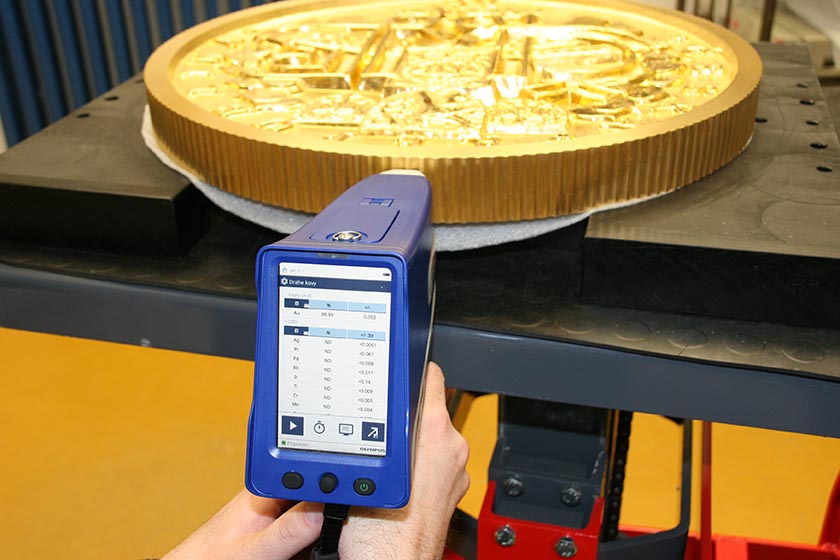For the 100th anniversary of the Czechoslovak koruna, the Czech National Bank (CNB) produced a gold coin with a nominal value of 100 million CZK (around 4.3 million USD). The coin was a symbol of the “100 years of the koruna” celebrations, during which it was exhibited at the Imperial Stables of Prague castle.
On-the-Spot Gold Analysis Throughout Production with X-Ray Fluorescence
It is the second largest gold coin in the world, made of pure gold, weighing 287 pounds (130 kg), and more than a foot and a half (0.5 m) in diameter. Manufactured by the Czech Mint in Jablonec and Nisou, the gold coin was analyzed during production using a Vanta™ handheld X-ray fluorescence (XRF) analyzer. Vanta analyzer models are available that can perform the XRF analysis of gold, gold alloys, and other precious metals as well as standard alloys. The Czech Mint used the Vanta XRF to check the purity of the gold coin at each phase of production.
 The results on the Vanta handheld XRF analyzer confirm the coin is 99.9% gold (Au).
The results on the Vanta handheld XRF analyzer confirm the coin is 99.9% gold (Au).
Facts about the Second Largest Gold Coin in the World
The Czech Mint won the tender for the gold coin. The semifinished coin was created by casting almost pure gold (999.9 according to the millesimal fineness system). The coin was then milled into relief with a design by academic sculptor and medalist Vladimir Oppl. One side of the coin emphasizes the birth of the Czechoslovak currency with a stamp from 1919 and the CNB logo. The reverse side of the coin features the Czech lion and the motif from a one-koruna coin from 1922.
Visit the official page of the coin, or watch the documentary, “Heavyweight Gold Coin,” to learn more about its production.


The Vanta handheld XRF analyzer being used to test the coin at the Czech Mint.
Learn more about Vanta XRF for precious metals analysis.









